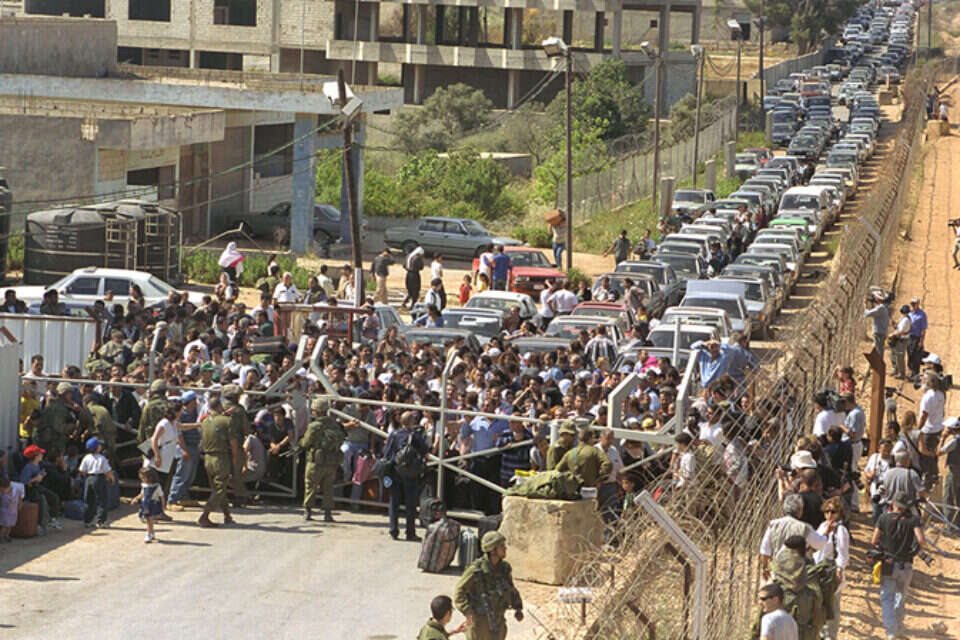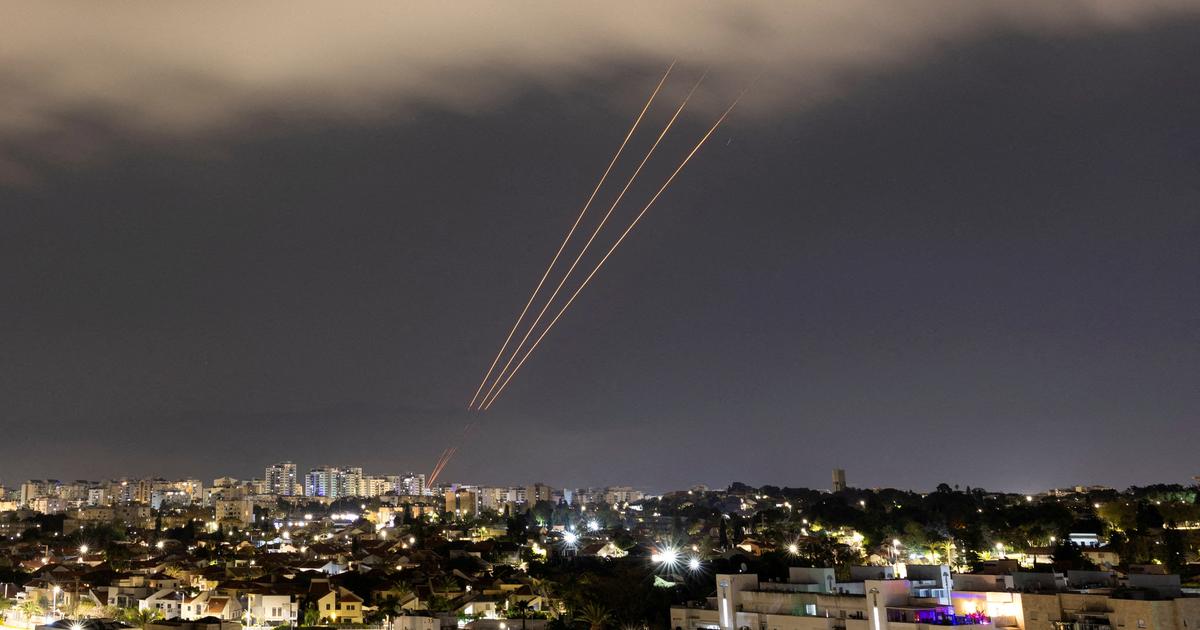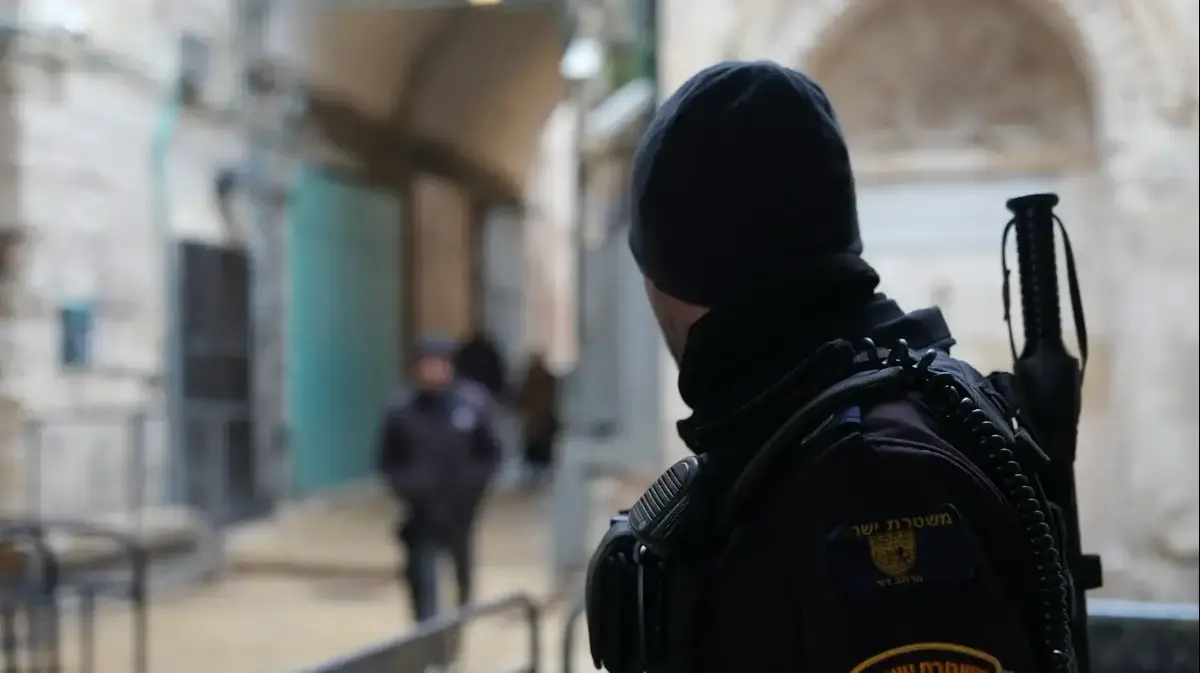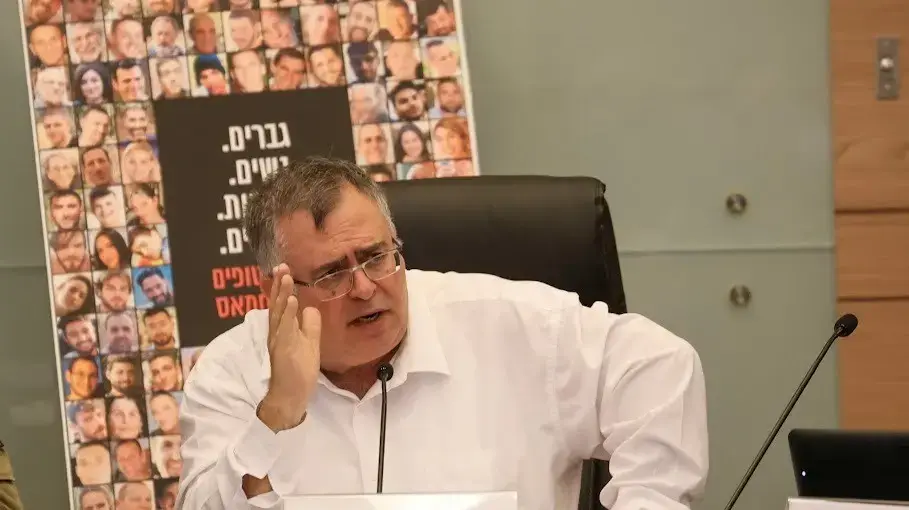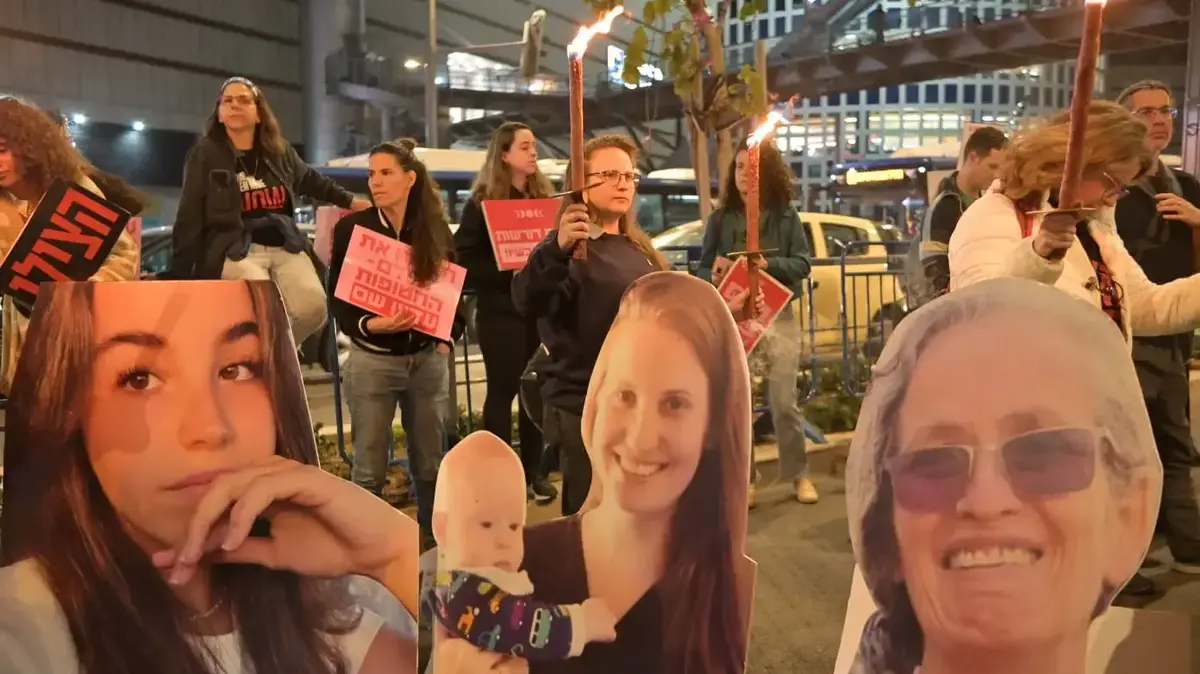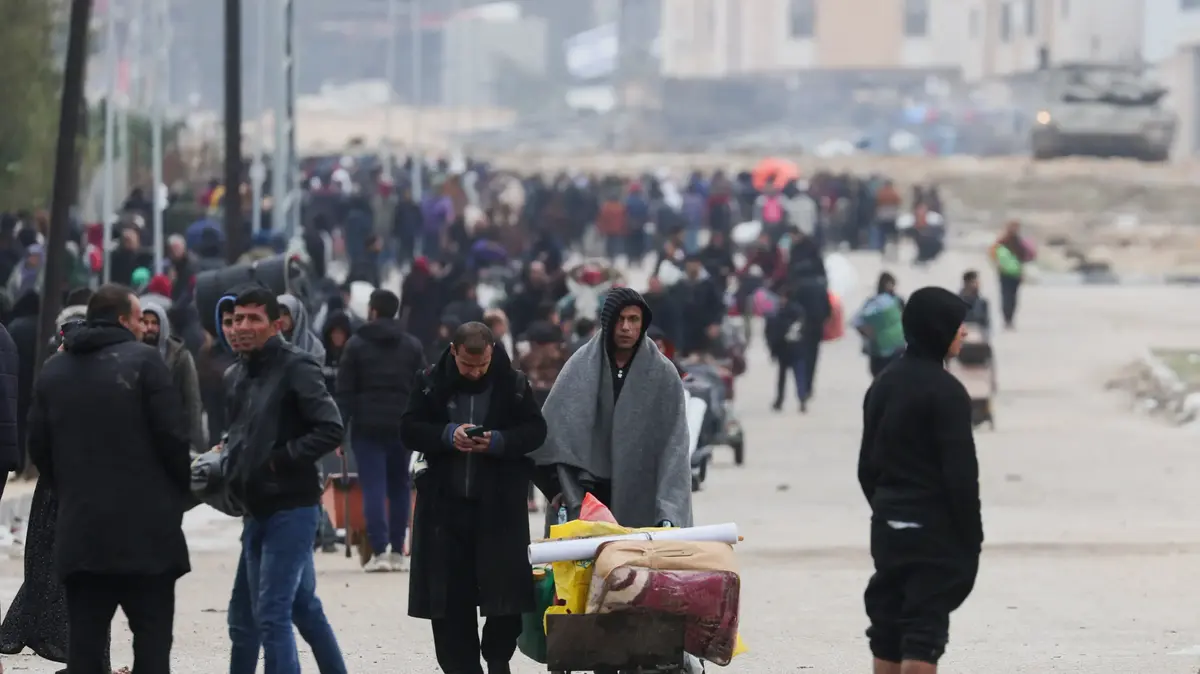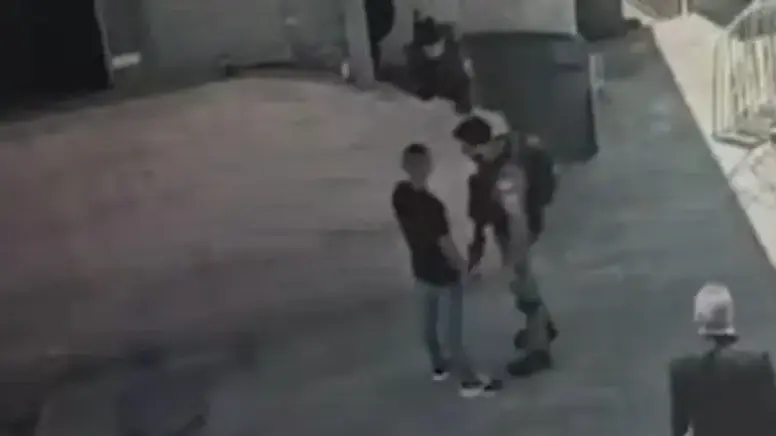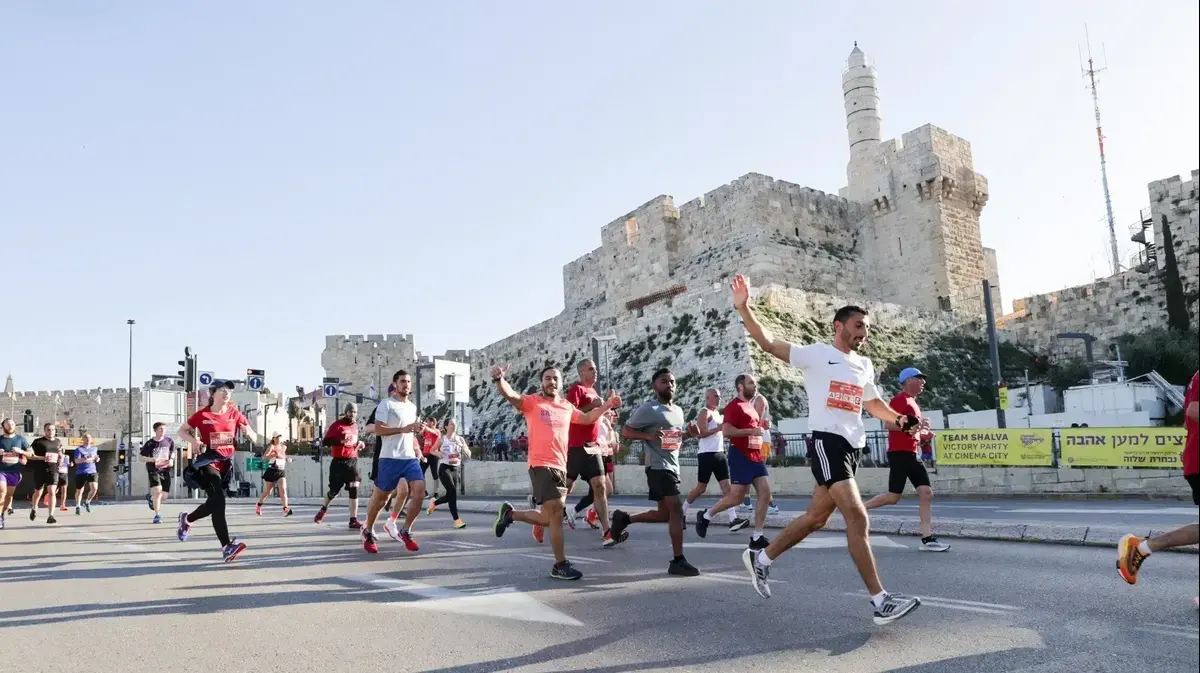This stain can not be removed, not with bleach, nor with degreaser.
The State of Israel has not been able to properly treat its allies, those who fought shoulder to shoulder with IDF soldiers, and in one hasty moment were displaced from their homeland. 22 years after the IDF escaped from the security zone in Lebanon, .
"For 22 years the senior officers were silent. They received everything, apartments, salaries, vehicles, and it did not bother them that their soldiers, who risked their lives even more than them, received almost nothing," says Samar Sharaf Aladdin, 56, a SLA fighter. Former and now a resident of Hurfish. "Classes were created within SLA graduates. I do not attend weddings today, I do not attend funerals and I do not want anything to do with the senior officer. We were deceived, exploited, and worst of all, hatred and envy entered us."
A torn community
About 7,500 SLA fighters fled to Israel, and were forced to start a new life as destitute refugees in a foreign country. "The State of Israel did not intend to absorb the junior soldiers, only the senior ones.
There was a stage where they tried to entice the fighters to return to Lebanon.
They were given a $ 30,000 grant.
"People returned to Lebanon, took all the money they had, and put them in prison," says Summer. "Still, over the years, thousands of SLAs have left Israel, and today there are about 650 SLA families living here, about 3,000 people.
The group - which from the beginning was not homogeneous and included Christians, Druze, Shiite Muslims and Sunni Muslims - dispersed in Nahariya, Kiryat Shmona, Tiberias, Carmiel, Maalot and Haifa.
Not everywhere did they agree to accept them, and some Arab citizens of Israel still treat them as traitors.
In 2001, by a government decision, SLA veterans were split into two groups: SLA officers, RPF and above, and those who assisted the intelligence branches of Israel, the GSS and the National Security Agency - about 200 families in total. By the GSS Security and Assistance Administration and received homes, salaries and extensive support.
The rest of the SLA's families, about 450 households, were transferred to the Ministry of Absorption and received significantly inferior rehabilitation conditions compared to those of SLA senior officials - without their own roof, without a pension and without other basic rights.
They received a one-time grant of about NIS 40,000 and rent assistance, which ranged from NIS 600 to NIS 1,200 a month.
"Already in Lebanon, some SLA commanders were corrupt.
They gave remote instructions and ran dubious trading businesses.
Their uniforms remained clean, while ours was soiled with mud and blood.
The commanders had the newest weapons, and we soldiers had old and broken weapons left.
So it is no wonder that in Israel they only took care of themselves.
Absurd situations have also arisen.
"People who had family ties with executives, signed all sorts of credentials and forms. I know a man who served exactly 23 days in the SLA, and managed to sneak into the executives' group.
He got a house and everything, and today lives in Switzerland.
"I, on the other hand, served in the SLA from the age of 15, and I also worked with intelligence agencies, but for some reason I was not included in the privileged group," says Summer and his hands are spread in a despairing movement.
Two of his fingers do not straighten, the result of injuries he suffered as a SLA fighter.
* About 7,500 SLA fighters entered the country, some gradually returning to Lebanon
* 650 SLA fighter families remaining in the country are scattered in Nahariya, Carmiel, Kiryat Shmona, Tiberias, Maalot and Haifa
* In a 2001 government decision, their senior officials received generous housing and assistance, While the junior warriors had to make do with modest financial assistance in rent
* The discrimination between the warrior groups divided the community;
Only in the 2022 budget is a budget reserved for redressing injustice
He was born in the Shufean Mountains in Lebanon to a Druze family, and grew up in Beirut.
At age 11, he was forced to hide for four years in Maroni Monastery, following a violent brawl he had with a Palestinian boy.
"After four years they decided to take me home. My father did not recognize me and I did not recognize him," he recalled with wet eyes.
In August 1976, his brother, then 18, was killed before his eyes by a bundle of Palestinian sniper rifles in his back during the Civil War.
"I saw my brother fall and started running towards him. An older man grabbed me by force and did not let me move. He told me that my parents would not stand to lose two children that day."
A month later, Samer, who had not yet turned 15, forged his age, and enlisted in the Free Lebanese Army, which in 1983 was renamed the South Lebanese Army.
For 24 years he served as a soldier, was wounded by Hezbollah explosives, and returned to service.
Among other things, he had a close acquaintance with Brigadier General Erez Gerstein, who was then the commander of the liaison unit for Lebanon. Emanuel.
In Israel, his second son was born, whom Erez named after the revered commander.
His eldest son served in the national service, and his youngest son still serves as a border fighter. He feels connected to the State of Israel, but eats longing for his homeland and his family left behind. Passport, abuse that all members of the SLA families who remain in Lebanon go through.
We left everything behind
One of the only SLA seniors with whom Summer maintained close contact is Daniel Abu Khir. The two meet and part in a fierce embrace of fighters who were together under fire.
He currently lives in Haifa, in a house he received from the GSS Defense and Assistance Administration.
"I hate this tension between the teams," says Daniel Abu Khir, (52).
"I do not belong to any group or to anything, because everything is regrettable. More associations are being set up all the time, and now there are too many associations of SLA veterans.
What do you need it for?
We all fought together, we were injured together, so we should treat everyone equally. "Daniel was injured three times, and the remains of his injury are visible in his eyes. He knew Israel through its hospitals, to which he was rushed every time he was injured. And Israel will become his home.
In 1976, the entire Maronite community in the area, about 4,000 people, was deported to Beirut, after 66 of its people were killed in a massacre in the village.
"In Beirut, already at the age of 9 after school we would carry ammunition for soldiers. Walking on the street was dangerous. There were snipers and missiles, so they made holes in the walls of the buildings and that's how we moved from place to place. Life was not easy, but we lacked nothing, there was enough food, There were drugs. "
Right: Summer Sharaf Aladdin, Helen Netzer-Assad, Daniel Abu Khir, Photography: Photo: Eyal Margolin, Ginny
During the First Lebanon War, the IDF occupied southern Lebanon, thus allowing Daniel and his family to return to his hometown. But the precarious security situation and the ongoing civil war prevented him from continuing his studies. We have to take care of our villages and our parents. "
In 1988 he was first injured, rehabilitated and returned to service.
In 1991 he was wounded again, by a bomb.
This time it is already difficult, in the eyes and feet.
He was taken to Rambam Hospital and returned to service. In 1994, Hezbollah set a trap for senior SLA officials, and a house inside it exploded.
"Five people were killed and I was injured and I reached Rambam again."
With the withdrawal of the IDF from the security zone in 2000, he managed in no way to reach the border with his wife and son. "We left the vehicle in Lebanon and entered Israel.
We arrived at Tel Hai.
I did not sleep all night.
I was very worried.
We were without property, without a future.
We left everything behind.
It took a long time for things to start working out. "They had another son and daughter in Israel, and today he works as a manager at the Haifa Zoo." My eldest will soon finish his military service, "he says and finds it difficult to disguise the pride in his voice.
Open for late repair
In 2015, Brigadier General (Res.) Yigal Presler wrote a letter to the government and members of the Knesset about the discrimination and division between SLA members who disintegrated the community from within.
"This unequal division has provoked deep resentment among SLA members, who feel for themselves that they have dedicated their lives to the security of the State of Israel and that it in turn abandons them.
I agree with these arguments.
"In my opinion, this is a scandalous and unjustified division that creates and even perpetuates inequality over the years among members of one community whose members have made a significant contribution to the security of the State of Israel."
Presler was appointed by the Prime Minister's Office to deal with SLA personnel, after the treatment was transferred from the Ministry of Absorption to the Prime Minister.
But only recently has the Israeli government begun to redress the long-standing injustice.
In the last state budget, it was decided to transfer NIS 290 million to the Ministry of Defense in favor of a grant and a loan to purchase an apartment for SLA juniors.
"A year ago, Chief of Staff Aviv Kochavi established a committee of SLA veterans, consisting of four senior officials, four juniors and a representative of the chief of staff.
Following the committee's activities, each of the 450 families who have neglected them to date will receive half a million shekels in a grant to buy an apartment and another half a million loan guaranteed by the state.
The money has been transferred to the Ministry of Defense and we are waiting for an update on how the money will be transferred to the families gradually, over the next four years, "says Rimon Murad, a former SLA fighter and member of the junior committee.
"It is true that for years the officers turned a blind eye and did not care that their soldiers did not receive support for years, but we do not blame them, our address is the Israeli government. We set up this committee, we made a sulha within us and we hope it will last. "That the brothers did not talk to each other. A great injustice was done here. The decision now may help financially the families who are left in distress, but it is not certain that it will be able to heal the wounds within the community."
In the name of the father and siblings
It will certainly not heal Helen Netzer-Assad's deep wounds.
She is 57 years old, a Marwan Christian who is married to a Druze, works as a kindergarten teacher in special education and is a mother of three, and yet finds time to travel around the country and lecture voluntarily about her chilling life story and SLA members. That's how important it is for me to tell, "says Helen, when the smile on her face fails to disguise the sorrow in her eyes.
Her story is not easy.
Her older brother Tony, who was a fighter in the Free Lebanese Army, was killed when he was 19 in a brawl with a Muslim shepherd near the village of Motzayya.
Her father was also killed in 1976 in a massacre.
"We all had to flee the village, we walked at night for three days, without water and without food, from hunger we ate oak leaves. In Beirut we started a miserable life without Dad. But at least we found out that Dad left property, so Mom could buy a store that supported us with dignity. , Who was a math teacher, was like a father to us. We did not know about it, but Nabil already had contact with the Israelis, for several years. After the first Lebanon war, Ephraim Sneh asked Nabil to return to the village and establish a SLA battalion there.
"Mother did not like it, but in the end we also returned to the village following Nabil."
"I begged for help from the government. If my brothers were alive - each of them would get a villa in Israel. It pays the State of Israel that they died. That way it costs her nothing. She does not help the bereaved families at all."
In 1986, Nabil was killed in a trap set by the Shiite organization Amal.
He, along with several other fighters, was shot while they came to sign the Hudna Agreement.
"We were orphaned again. For a year mother did not speak and did not leave the house, out of grief. He is lost and confused. When Nabil was killed he was 34, his youngest son was 8 months old. Every time he saw a jeep he chased after him and asked: ' Where's Daddy? Where's Daddy? '".
Nabil's younger brothers, Assad and Maron, wanted to continue on his way.
"It was important for them to show our enemies that we could not be intimidated. Assad had already served in the intelligence unit and could not leave his post, so Maron, despite his young age, 24, was appointed battalion commander in Nabil's place.
Maron was a handsome man with green, fearless eyes.
He convinced his mother to allow him to continue in his brother's role.
He told her that everything was 'written' and if he was sentenced to die, it could also happen in a car accident.
"Maron was very successful in his role, he always made sure to march at the head of the fighters, so was his last mission in 1988 where he was shot and killed. Assad decided he must continue the mission of his brother who was cut off, The battalion "In 1994, he, along with four other SLA troops, was killed by a bomb planted by Hezbollah."
"Assad, your brother, was my commander," Summer says.
"He was an amazing man, and unlike the commanders who came after him, he was on the ground, taking care of his soldiers first."
"My brothers as commanders did not agree to accept anything before their soldiers. They would never agree to the discrimination that has been created here in the State of Israel. It hurts so much to see this internal conflict within SLA veterans.
It's so contrary to my brothers' legacy. "
If the Job suffering was not enough, the family suffered another fatal blow.
Assad's son and daughter were killed by a bomb planted by Hezbollah, and were specifically aimed at harming the Netzer family.
Since then, the nickname "Death Dynasty" has stuck with the family.
Three generations of loss and bereavement.
Helen mourned the death of her brother and nephews from afar.
Two years before Assad was killed, Helen moved to Israel.
While still in Lebanon, she fell in love with an IDF fighter, an Israeli Druze. "When my mother heard about this affair, she locked me in a room at home for a month," she laughs.
We registered our three children, Ruthie, John and Gimi, as Druze, so that they could serve in the army, like all Israelis.
I could not come to Assad's funeral.
I was not allowed to.
Even at my mother's funeral, who passed away four years ago, I could not be.
I have two sisters and a brother in Lebanon, whom I have not met for 30 years, because they are not given a passport and the option to leave Lebanon.
I have another brother who lives in Sweden today and he is the only family member I can meet. "
Over the years Helen has not received any assistance or recognition from the state.
"When my mother needed heart surgery, I went to one of the government offices and begged for help. No one helped a woman whose three sons died on the SLA.
I am not considered a SLA family. If my brothers were alive - each of them would get a villa here in Israel. Therefore, it was very profitable for the State of Israel that they died. Don't get me wrong, I love this country to the bone, and feel part of it. My two sons served in the military, and the daughter in national service. My heart goes out to every mother whose son serves in the IDF.
But on the other hand, I am hurt by the lack of recognition of the SLA's contribution to national security. That is why we established the Justice Association for the SLA.
"This association was established right here in Helen's home in 2017," says Advocate David Barlev, one of the association's founders. "To the Juniors."
But the amendment at the moment will not help below, that her case falls between the chairs and she is not entitled to any assistance.
almost.
After a long struggle she was recognized as a bereaved sister and therefore she is entitled to assistance with psychological treatments.
"Really thank you very much," she says cynically.
"When my brothers died, and I tried to commit suicide two or three times - then it did not move anyone. My family sacrificed everything and received nothing. But the truth is that the material and economic part is not what matters most to me. I want my brothers' story to become a symbol, teens know we fought together".
Were we wrong?
Fixed!
If you found an error in the article, we'll be happy for you to share it with us

